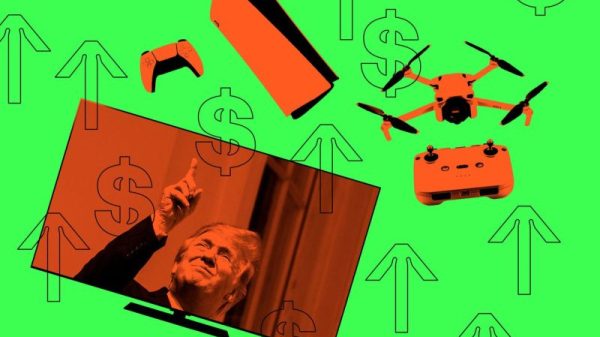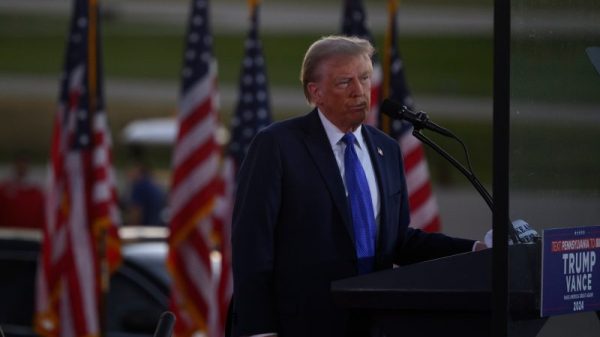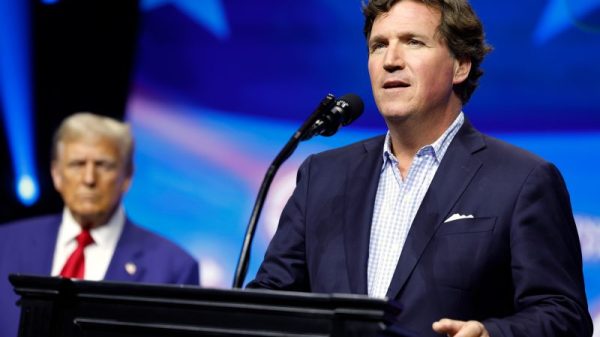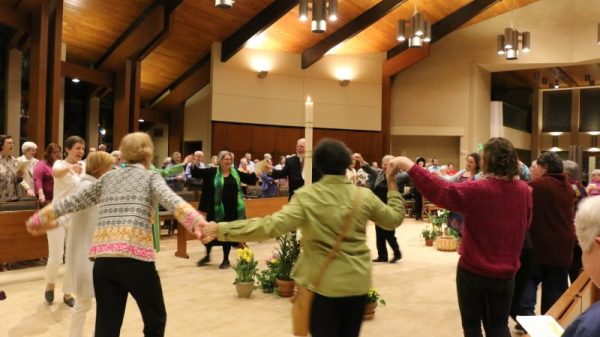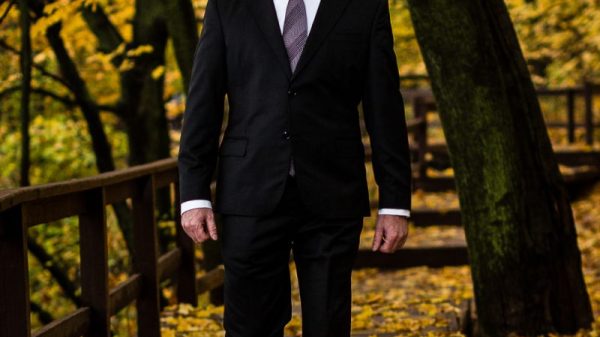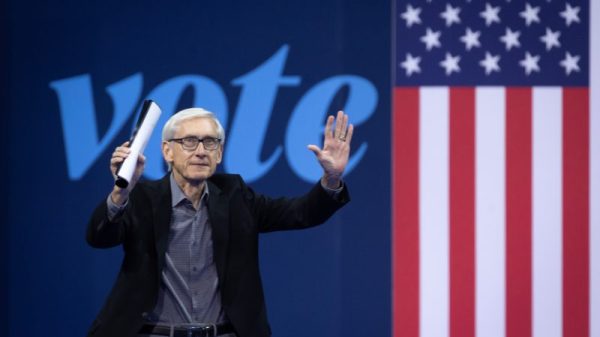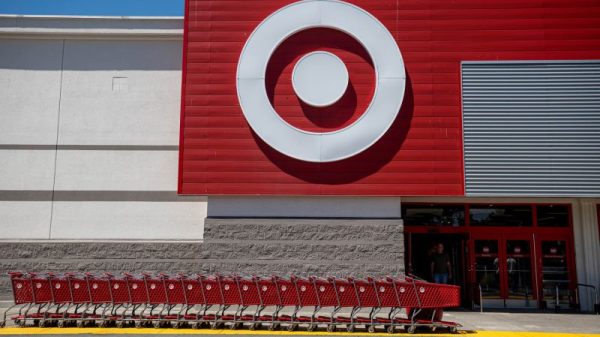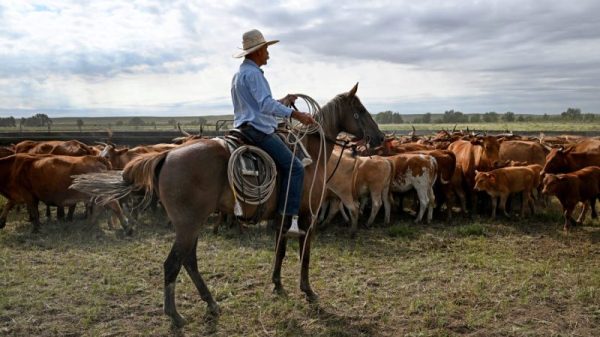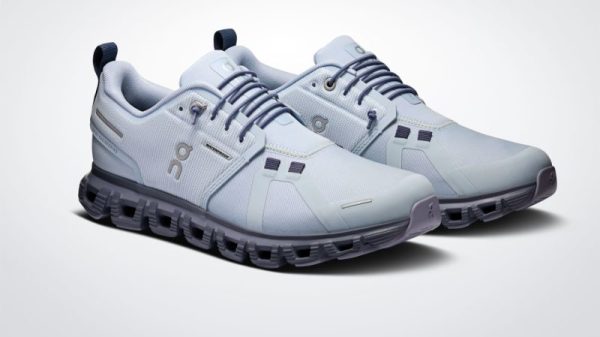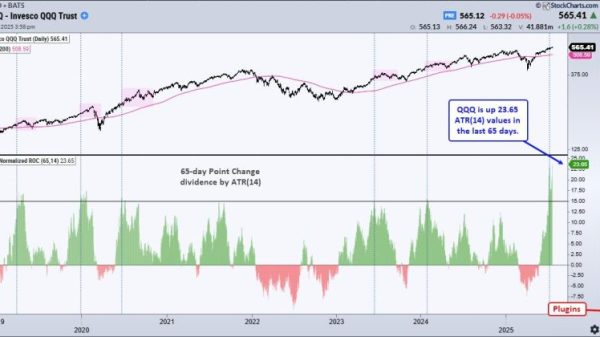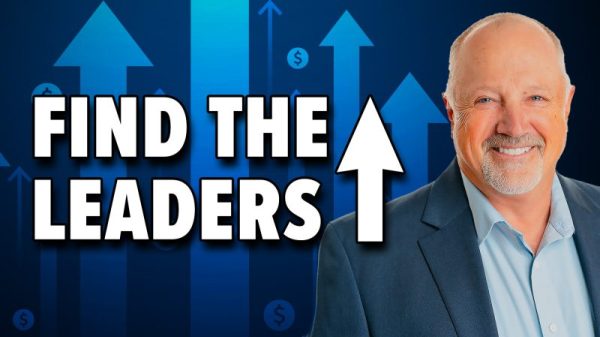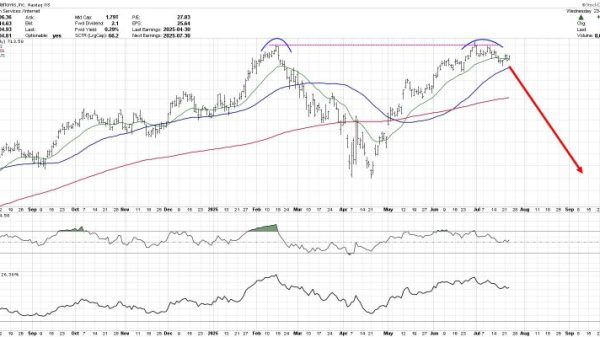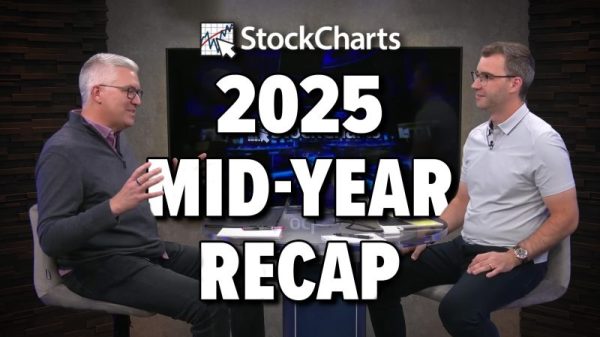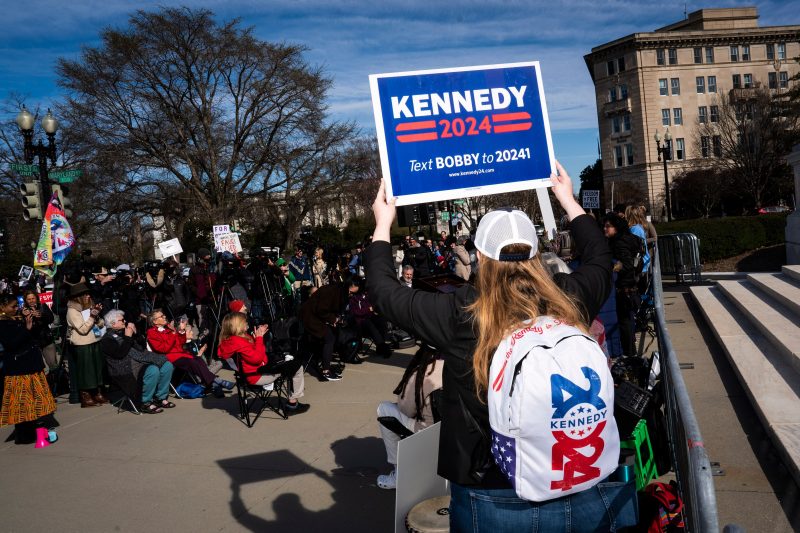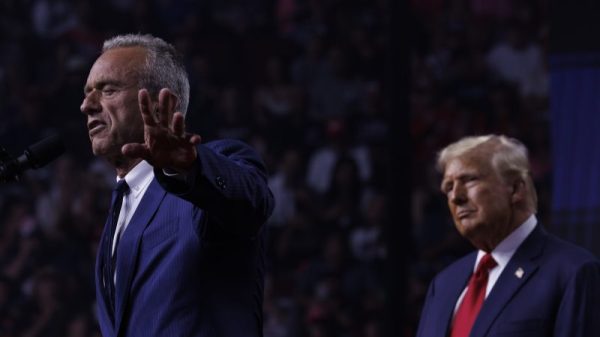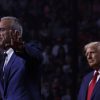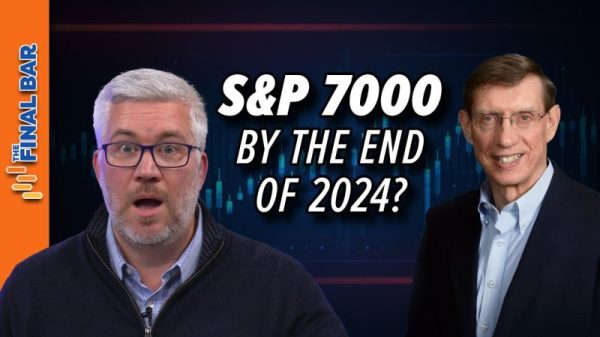Chris Nelson, a Florida DJ and social media influencer, voted twice for Donald Trump, but the 41-year-old said he won’t again because of the coronavirus mandates during Trump’s presidency.
Tony Vinciguerra, a 34-year-old former supporter of Sen. Bernie Sanders (I-Vt.), said he thinks President Biden is too old and propped up by the Democratic Party establishment — so much so that he would rather see Trump back in the Oval Office.
Jessica Silorey, 31, a Michigan mom of two from a family of Democrats, said she rejects Trump yet can’t imagine voting for Biden again when he hasn’t done enough to ease inflation. “I’m passionate about not Trump,” she said, “and I’m not passionate about Biden.”
These three voters are part of a large and politically diverse group of Americans who are unenthusiastic about a Trump-Biden rematch in November’s election. A growing number of them are considering a third-party option: Robert F. Kennedy Jr.
The independent presidential candidate with a famous last name has attracted the attention of voters from across the ideological spectrum who are hungry for an alternative to the presumptive Democratic and Republican nominees.
Kennedy, an environmental lawyer and first-time candidate, is widely known for his opposition to coronavirus vaccines — and the falsehoods he has spread about them — but his overall policy views are less established, allowing his supporters to see in his candidacy what they want to see.
Recent interviews with 26 voters from at least five states interested in Kennedy offer a glimpse into the broad coalition he is assembling, from far-left voters intrigued by his Kennedy lineage and environmental record to far-right supporters aggrieved by government-mandated public health measures. What they have in common is a desire for a president other than Trump or Biden.
In recent polls, Kennedy has attracted a sizable share of voters: Thirteen percent said they would pick him, compared to 39 percent for Trump and 38 percent for Biden, according to a March 21-25 Quinnipiac poll.
Patrick Murray, director of the independent Monmouth University Polling Institute, whose surveys have shown similar trend lines, said Kennedy’s stances on issues are not well known by the electorate.
“People who are interested in Kennedy are just fed up with Trump and Biden,” he said.
Kennedy’s campaign has raised nearly $28 million since he announced he was running and had about $5.1 million on hand as of February, according to campaign finance filings. On Tuesday, he announced his running mate, tech attorney and Democratic donor Nicole Shanahan, whose wealth and Silicon Valley connections could help Kennedy with the expensive and arduous task of getting on state ballots. He already has secured ballot access in Utah, and his campaign says he has the necessary signatures to qualify in New Hampshire, Hawaii, Nevada and North Carolina. A pro-Kennedy super PAC says it has gathered signatures in other states as well.
Kennedy is on track to potentially have the strongest finish for a third-party presidential candidate since Ross Perot, who received 18.9 percent of the vote in 1992 and 8.4 percent in 1996.
Most third-party candidates have struggled to gain traction in presidential elections, but Kennedy is drawing substantial support early on, posing a threat to both Biden and Trump, according to political strategists. Nine percent of voters nationally said they would vote for Kennedy, compared to 40 percent for Trump and 38 percent for Biden, according to a March 8-11 Suffolk-USA Today poll.
Kennedy’s greatest potential impact could be in battleground states, where the margins of victory for either Biden or Trump could be slim.
Democratic officials, including Biden surrogates in swing states, are concerned that Kennedy could peel enough votes from Biden to enable Trump to win.
“We know here in my state that the next presidency is going to be decided … by a few thousand votes,” Michigan state Sen. Mallory McMorrow said on a call with reporters arranged by the Democratic National Committee. “There is absolutely no path for Kennedy to become president, and he knows that. That is why he picked a VP who can buy his way onto the ballot in a number of states.”
On the campaign trail, Kennedy showcases his outsider status, despite being a son of a Democratic U.S. attorney general and a nephew of a Democratic president. At his events, a video about his move to leave the Democratic Party riles the crowds, drawing cheers when Kennedy says he hopes to end divisiveness. Audience members affectionately chant “Bobby.”
Kennedy has argued his popularity shows Americans are dissatisfied with the two-party system — and that even if he wasn’t running, the same dissatisfaction would exist.
“President Biden does not need my help to lose the election,” he told delegates at the California Libertarian convention in late February.
Many of Kennedy’s backers say they’ve gotten to know the 70-year-old through his appearances on their favorite podcasts, such as those hosted by Joe Rogan and wellness influencer Aubrey Marcus. Many of these interviews have allowed Kennedy to speak at length about his beliefs, as well as to spread misinformation, typically without being fact-checked or questioned.
Kennedy has sought to appeal to independent voters younger than 45 and acknowledges that he faces more challenges winning over older voters, who tend to get their information from cable news and newspapers. While that generation was alive when his father and uncle served, they generally do not associate Kennedy with the same ideals.
“The one group that I’m doing poorly with is the people I should be doing the best with,” he said at the California Libertarian convention. “If I was living in that information ecosystem, I’d have a low opinion of myself too.”
Many of Kennedy’s supporters say they felt frustrated by public health restrictions enacted during the pandemic because of the economic and societal ramifications, and they admire that Kennedy decries mandates and vaccines.
Kennedy has spread misinformation about covid, including falsely suggesting that vaccines did not reduce the spread and that the virus could have been “ethnically targeted” to spare Ashkenazi Jews and Chinese people. He has not acknowledged the scientific finding that vaccines prevented serious illness and saved lives. He also has repeatedly said he believes vaccines can cause autism, a claim disproved by research.
Other supporters, however, dismiss Kennedy’s false or misleading comments as questionable but not disqualifying. Jeff Hutt, 50, saw Kennedy speak near his hometown of Rockport, Tex., and said he appreciated his efforts to end chronic disease and preserve health by exposing the dangers of toxic chemicals in air and waterways. But Hutt didn’t know Kennedy has discouraged parents from vaccinating their children.
Hutt said his kids are vaccinated. He said that wouldn’t dissuade him from voting for Kennedy.
“The vaccine thing doesn’t give me pause,” he said.
Silorey, the Michigan mom, said she and her family members are vaccinated against illnesses. But she said she’s more worried about the cost of living, especially housing prices, and the unhealthy world her generation will leave for her children.
“It’s not something that bothers me,” she said of his vaccine skepticism. “I think I got excited about him because he talks a lot about getting healthy, about people who have diabetes, who have cancer. I’m not a person who necessarily thinks that’s because of vaccines, but I do think we’re unhealthy and I think there are people who don’t care what’s in our food, what’s in our water.”
Many Kennedy supporters say they understand that he believes there should be more testing of vaccines, which they favor, even if they may disagree with him that vaccines don’t work or are unsafe.
Some Republicans say they like Kennedy’s position against other public health measures during the pandemic, such as not barring companies from requiring their workers to be vaccinated. This is one way Kennedy might be able to pick away at Trump’s loyal base.
For instance, Nelson, the former Trump supporter in Florida, supported Ron DeSantis in the primaries largely because of the Florida governor’s handling of the pandemic, but felt frustrated when the Republican Party overwhelmingly supported Trump. Now, Nelson is drawn to Kennedy and believes he should more vocally speak out against Trump to attract his fellow “DeSantis Republicans.”
“Something that isn’t really being talked about very much is the amount of pro-medical-freedom Republicans that want a reckoning for what happened during covid,” Nelson said.
Kennedy has been gaining steam thanks to the historic unpopularity of the major parties’ likely nominees. Forty-one percent of U.S. adults say they have a favorable opinion of Trump, compared to 40 percent for Biden, according to a March 24-26 poll by the Economist and YouGov.
Consider Sharon M., a 53-year-old Pennsylvania mother who runs a Twitter account called “Moms for RFK Jr.” Sharon, who spoke under the condition that her last name not be used to protect her privacy, said she voted for Biden in 2020 and Hillary Clinton in 2016 because she detests Trump. But she said she has grown to dislike Biden as well because he has not restored unity in the United States, which he had campaigned on.
Sharon said she watched clips of Biden’s recent State of the Union address and felt uncomfortable with his partisan tone.
“It didn’t seem like someone who was trying to heal the divide,” she said.
At Kennedy’s event announcing Shanahan as his running mate, Rose Raiser Jeavons, a 24-year-old California tarot card reader, was dressed in a star-spangled skirt, waved an American flag and vowed that she is “ride or die” for Kennedy. Rose and her mother, Cynthia Jeavons, 62, both wrote in Sanders’s name in the 2020 election because they didn’t want to vote for what they saw as the lesser of two evils, Biden or Trump. Now, they said they have found someone they can support in Kennedy — because, as the younger Jeavons said, he shares their concerns for “freedom across the board.”
“I think a lot of people look back in history and think this has never happened before and it’s never going to happen and why even try,” she said. “That’s a very un-American mind-set in my opinion.”
Hector Roos, who has been organizing a coalition of Libertarians in favor of Kennedy, is lobbying others in the Libertarian Party to nominate Kennedy as their standard-bearer, arguing his high name recognition could elevate their third party. Roos said Kennedy’s platform broadly aligns with the party’s, although he’s hoping the candidate’s platform will further move toward Libertarian ideals, such as eliminating the Federal Reserve and overhauling the tax code.
Given Biden’s and Trump’s unpopularity, Roos said the timing could be opportune for a Libertarian candidate.
“This is a perfect storm for a third-party candidate,” he said. “If there was ever going to be one, this is the closest it could possibly be.”
Amy Wang and Clara Ence Morse contributed to this report.


